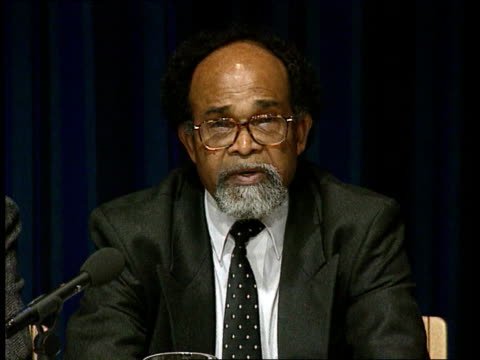R v Malcolm [2011] EWCA Crim 2069, [2011] All ER (D) 4 (Sept)
The Court of Appeal today (1 September 2011) handed down its judgment in R v Malcolm, an appeal in which it was argued that the conviction was unsafe because of the way in which the trial judge had conducted proceedings.
The appeal was heard by a constitution comprising the Lord Chief Justice, Lord Judge, Lord Justice Hooper, and Mr Justice Blair. In a lengthy and important ruling, they upheld the principal complaints, and quashed the conviction:
The defendant had been arrested and charged with stealing a quantity of fixtures and fittings belonging to his former landlord. He provided a written statement in which he claimed that a female representative of the letting agent had authorised him to take some furniture as a security towards his deposit. The case was listed for trial in the Crown Court and the defendant was ordered to file a defence statement. On the day of the trial the recorder immediately noted the inadequacy of that statement, commenting that it was “not worth the paper that it was written on”.
He warned the defendant that a failure to provide a defence statement within the terms of the Criminal Procedure and Investigations Act 1996 left him open to adverse comments from both the Crown and himself. During the course of the trial, the recorder made a number of further criticisms of the defence statement. In light of what he perceived to be gaps in the evidence, the recorder directed the prosecution to call a witness from the letting agency. The witness was asked a series of questions by the recorder.
He subsequently ordered the attendance of the letting agent who had dealt with the defendant. The prosecution had not intended to call either witness. The defendant was convicted unanimously of the theft and sentenced to 21 months’ imprisonment.
On appeal, he submitted that the recorder had entered the arena and acted as an advocate and second prosecutor. Accordingly, he had denied him a fair trial by: (i) requiring the prosecutor, albeit in the absence of the jury, to call witnesses to fill what the recorder had seen as a gap in the prosecution’s case; and (ii) the manner in which he had dealt with the defence statement.
It was established law that the safety of a conviction did not merely depend upon the strength of the evidence which the jury had heard. It depended also on the observance of due process. Although the judge in a criminal trial had the power to call a witness, it was a power which had to be used sparingly and rarely exercised.
The role of the judge was to hold the ring impartially and to direct the jury on the law. The test was whether a fair minded and informed neutral observer would conclude in all the circumstances that there was a real possibility that the judge had been biased against the defendant (see paras 102-110).
In the instant case, the way in which the recorder had descended into the arena was inappropriate. The combined effect of his constant repetitious criticism of the inadequacies of the defence statement (when, having given the defence every opportunity to make good those deficiencies, he would have been entitled to make strong comments in his summing up) together with the directions he gave to the prosecution about witnesses who were to be called, would have created in the mind of the informed mutual observer the perception that there was a real possibility that the recorder had become biased against the defendant (see para 113).
The conviction was unsafe and would be quashed (see paras 114 and 121).
To read or download the full judgment see here and here.
To read the Law Society Gazette’s report see here.
The defendant was represented by Jemma Levinson, instructed by Eshaghian & Co.
To instruct Jemma, please contact our clerks on 020 7452 8900 or clerks@1mcb.com.



